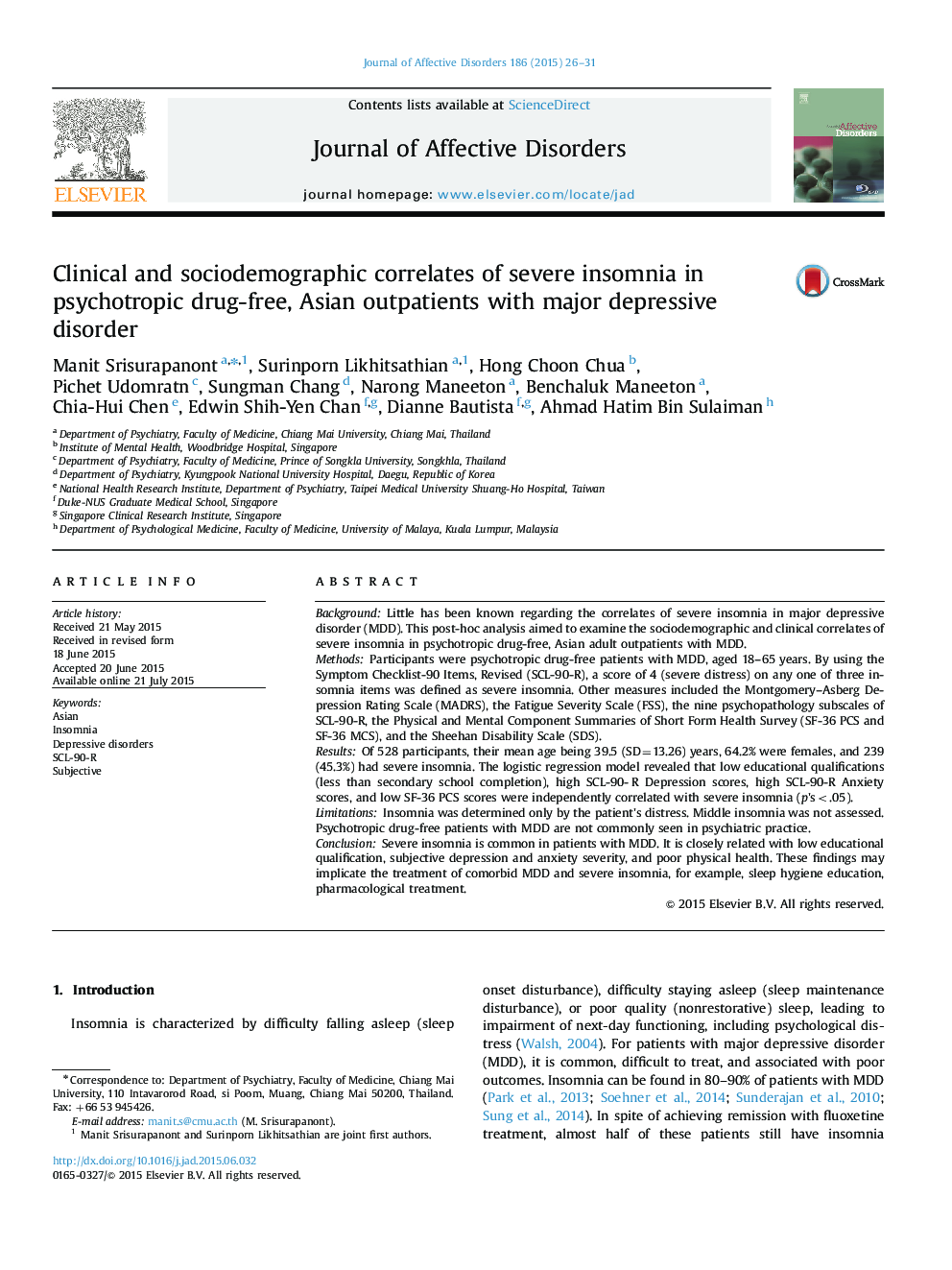| کد مقاله | کد نشریه | سال انتشار | مقاله انگلیسی | نسخه تمام متن |
|---|---|---|---|---|
| 6231116 | 1608139 | 2015 | 6 صفحه PDF | دانلود رایگان |
- We examined the correlates of severe insomnia in major depressive disorder (MDD).
- Of 528 participants with MDD, 239 (45.3%) had severe insomnia.
- Correlates were low education, depression, anxiety, and poorer physical health.
- These correlates may implicate the treatment provided for this population.
BackgroundLittle has been known regarding the correlates of severe insomnia in major depressive disorder (MDD). This post-hoc analysis aimed to examine the sociodemographic and clinical correlates of severe insomnia in psychotropic drug-free, Asian adult outpatients with MDD.MethodsParticipants were psychotropic drug-free patients with MDD, aged 18-65 years. By using the Symptom Checklist-90 Items, Revised (SCL-90-R), a score of 4 (severe distress) on any one of three insomnia items was defined as severe insomnia. Other measures included the Montgomery-Asberg Depression Rating Scale (MADRS), the Fatigue Severity Scale (FSS), the nine psychopathology subscales of SCL-90-R, the Physical and Mental Component Summaries of Short Form Health Survey (SF-36 PCS and SF-36 MCS), and the Sheehan Disability Scale (SDS).ResultsOf 528 participants, their mean age being 39.5 (SD=13.26) years, 64.2% were females, and 239 (45.3%) had severe insomnia. The logistic regression model revealed that low educational qualifications (less than secondary school completion), high SCL-90-Â R Depression scores, high SCL-90-R Anxiety scores, and low SF-36 PCS scores were independently correlated with severe insomnia (p's<.05).LimitationsInsomnia was determined only by the patient's distress. Middle insomnia was not assessed. Psychotropic drug-free patients with MDD are not commonly seen in psychiatric practice.ConclusionSevere insomnia is common in patients with MDD. It is closely related with low educational qualification, subjective depression and anxiety severity, and poor physical health. These findings may implicate the treatment of comorbid MDD and severe insomnia, for example, sleep hygiene education, pharmacological treatment.
Journal: Journal of Affective Disorders - Volume 186, 1 November 2015, Pages 26-31
